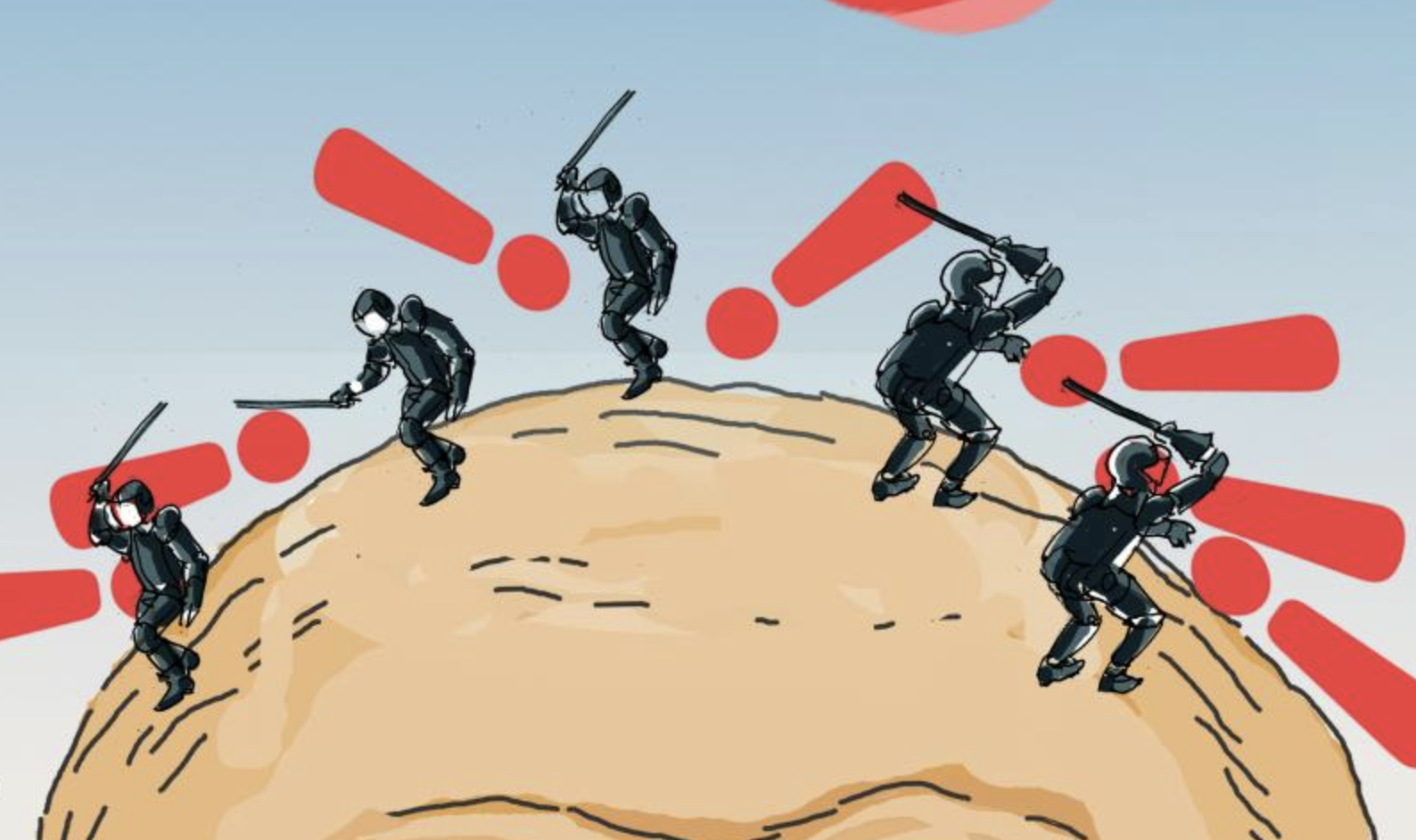Since the end of March, the Belarusian opposition has been preoccupied with the mysterious disappearance of Angelika Melnikova, a political activist who had been living in exile in Poland. Melnikova was the chairperson of the Coordination Council, a kind of proto-parliament established by Belarus's democracy movement after the fraudulent 2020 elections. In addition to her role on the council, Melnikova worked closely with Pavel Latushko, a former Belarusian diplomat who had defected to the anti-Lukashenka opposition and was living in Poland. Melnikova's two daughters, aged 6 and 12, are also missing.
The activist was last heard from on 25 March. That is Belarusian independence day, although Alexander Lukashenka's regime bans its celebration. Since then, there has been a steady trickle of reports about the circumstances of Melnikova's disappearance. As early as February, it seems, she told her colleagues that she needed time to sort out her affairs. Later she informed them that she was taking time off due to a Covid-19 infection.
Pavel Latushko, who reported Melnikova's disappearance to the Polish authorities – the missing woman has both Belarusian and Polish citizenship – claims that her phone has been in Belarus since 19 March. He also claims to be certain that one of her devices was in Warsaw as recently as 18 March. In turn, the Polish authorities say that they believe Melnikova has been outside Poland for several weeks.
Meanwhile, on 7 April, independent Belarusian journalists managed to reach Melnikova's ex-husband, and were told that he is in Belarus and that his daughters are with him. He claims that he has no idea where his ex-wife is and is also worried about her sudden disappearance.
Until 2020, Angelika Melnikova worked as a top executive at the Belarusian branch of Coca Cola. In that year she got involved in the post-election protests, and was twice arrested on charges of participating in and organizing unauthorized demonstrations. She and her family fled to Poland, where she became active in the exiled democratic opposition. In the meantime, she divorced her husband, who worked in Poland as a programmer.
The most likely scenario is that Melnikova was abducted by Belarusian or Russian intelligence services. If this is the case, the regime will probably “show her off” at some point in the future. Perhaps this will take the form of a public show of contrition and gratitude to Alexander Lukashenka for the chance to return to Belarus. The same method was used to silence the independent journalist Raman Pratasevich, who was abducted in 2021 and now works for the regime. Although Melnikova's story remains shrouded in mystery, one thing seems certain: Lukashenka's regime is still very dangerous for anyone who has openly opposed it. The menace applies regardless of where these people are, and emigration does not guarantee safety.
Gagauzia’s governor Evghenia Guțul’s arrest
Moldova is getting very serious about its parliamentary elections, due in a few months. A case in point is the arrest of Evghenia Guțul on 25 March at Chisinau airport. Guțul is the governor of Gagauzia, an autonomous region in the south of Moldova, where pro-Russian sentiments hold sway and Russia therefore has serious influence.
The Moldovan authorities suspect Guțul of collaborating with the fugitive oligarch Ilon Shor, who was the main sponsor of a vote-buying operation that marred Moldova's presidential elections last autumn. Prior to that, Guțul herself benefited from Shor's influence and resources during her regional election campaign in Gagauzia, and has also been seen in Moscow shaking hands with Putin himself. Indeed, she reportedly wrote to the Russian president from prison, asking him to use all available means to secure her release.
The Moldovan authorities are aware of the scale of Russian influence operations in their country. Until now they have preferred not to go after figures such as Guțul for fear of further destabilization. Following the autumn presidential elections, which took place alongside a referendum on the subject of Moldova's EU application, Chisinau has decided to get tough on Russian meddling. The upcoming parliamentary elections will tell whether that strategy is the right one.
In partnership with Display Europe, cofunded by the European Union. Views and opinions expressed are however those of the author(s) only and do not necessarily reflect those of the European Union or the Directorate‑General for Communications Networks, Content and Technology. Neither the European Union nor the granting authority can be held responsible for them.

Do you like our work?
Help multilingual European journalism to thrive, without ads or paywalls. Your one-off or regular support will keep our newsroom independent. Thank you!
















